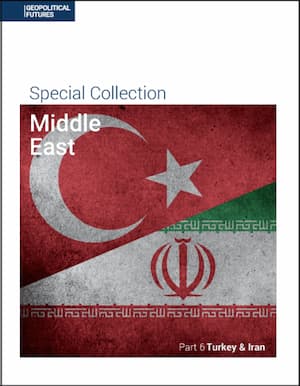Israeli Prime Minister Benjamin Netanyahu addressed his Cabinet in front of cameras Jan. 17, as he does at the beginning of every week. For Netanyahu however, this week is different. The day before his address, the United States and the European Union lifted their sanctions against Iran. Netanyahu, who has served as Prime Minister longer than anyone except founding father David Ben-Gurion, has in part built his political career on the notion that he, more than any other Israeli leader, recognized the existential threat Iran poses to Israel. And yet in his brief remarks to the cabinet about Iran, it was as if nothing had changed. Before moving on to talking about reforms to business taxation laws and new requirements for nongovernmental organizations, Netanyahu spent only six sentences on Iran—and one of them saluted Israel’s success in curbing Iranian attempts to develop nuclear weapons.
Just over nine months ago, Netanyahu ascended a dais in the U.S. Capitol to address a joint session of Congress. In his remarks, Netanyahu said that a deal with Iran was not going to prevent it from developing nuclear weapons. On the contrary, Netanyahu said “it would all but guarantee that Iran gets those weapons, lots of them.” It is a jarring juxtaposition that bears explaining. One image is of a bellicose, charismatic Netanyahu imploring the United States not to make a “bad deal” with Iran. The other, of a relatively subdued politician proceeding with business as usual the day after his mortal enemy (from his perspective) paved a clear path to developing nuclear weapons.
The first observation to make is one that we forecast: There is a growing divergence between American interests and Israeli interests in the Middle East. The U.S.-Israeli relationship, contrary to popular belief, is not eternal nor set in stone. It was the Soviet Union, not the United States, that provided Israel with the weapons it needed during its war for independence in 1948. When Israel, along with France and the United Kingdom, invaded Egypt in 1956, it was U.S. President Dwight Eisenhower who told Prime Minister Ben-Gurion in no uncertain terms that Israel needed to withdraw.
It was only in the context of the Cold War that the U.S.-Israeli relationship began to evolve toward its current state. And it is useful to understand why it developed, because in a sense the United States is returning to its Cold War, balance-of-power strategy, though the key players and objectives are somewhat different. Pro-Soviet Baathist parties took control of Syria and Iraq in 1966 and 1968, respectively. Egypt had already turned to the Soviets following the aforementioned 1956 Suez Crisis. Israel and Iran both became critical allies for the United States as a result. A strong U.S.-Israeli relationship meant that the Soviets could not project power into Turkey, and therefore the Bosporus, through their Egyptian and Syrian satellites. Having Iran as an ally also meant that Iraq had to be concerned with its Persian neighbor instead of furthering Soviet ambitions in the region. The truly watershed year in the U.S.-Israeli relationship was 1973, when U.S. military assistance soared following the Arab-Israeli War.
The Soviet Union is long gone, and even with Russia’s limited adventure into the Syrian civil war, the overall dynamic is quite different. Still, the United States is seeking to withdraw from direct involvement in Middle Eastern conflicts, and it plans to do so by developing a new balance of power out of the charred remnants of the second Iraq war. After the Soviet Union fell in 1991, the U.S.-Israeli relationship entered something of a honeymoon phase. The previous strategies driving the relationship fell with the Soviets. But there was no pressing new strategy for the United States in the region. That is no longer the case. For the first time in decades, the Israelis and the Saudis face a United States that does not unquestionably support them in every circumstance. The U.S. is forging new and evolving relationships with Iran, Turkey and others in order to bring a modicum of, if not stability, at least predictability to the current state of affairs. Iran needs an improved relationship with the United States and the European Union more than the West needs Iran—and Iran used a nuclear gambit in order to extract the most concessions that it could in negotiations where it ultimately had the weaker hand.
It is important not to be hyperbolic about the degradation in the U.S.-Israeli relationship. A great deal is made about the antagonistic personal relationship between Netanyahu and U.S. President Barack Obama. Whether Obama and Netanyahu like each other is immaterial. The broader strategic imperatives override personal taste. And as a result of those imperatives, the U.S.-Israeli relationship is in a sense reverting to what it was—a relationship built on strategic need. That is scary for Israel because it means it has lost a degree of control over U.S. actions, as the Iran deal shows. But it also means U.S.-Israeli relations will be based on shared strategic goals, and while Israel’s importance may have declined for the United States, it certainly has not been reduced to nothing. On the contrary, the U.S. still depends on Israel for a great deal, and Israel is integral to the balance the U.S. is trying to construct in the region. Netanyahu said his piece, but he recognizes how important the overall relationship is and must now fall in line.
The second observation to make is that Israel, for all its military strength, could not prevent Iran from developing nuclear weapons if Tehran wanted to. In a statement released immediately after the sanctions were lifted, Netanyahu said Israel “will do everything necessary to safeguard its security and defend itself.” But generally Israel has been all talk when it comes to Iran, like when it threatened to attack Iranian nuclear sites in 2012 or when former Defense Minister and Prime Minister Ehud Barak leaked to Israeli television in August that Israel had planned to attack Iran on three separate occasions before canceling at the last moment.
Israel will no doubt make similar pronouncements in the future, and it is not unreasonable for it to do so. A nuclear Iran does pose an existential threat to Israel—a far more dangerous one than the Islamic State or a full-scale third Palestinian intifada. Israeli leaders must prepare for what Iran is capable of and not what it hopes Iran will or will not do. But the fact of the matter is that first of all, it is unclear that Iran ever actually wanted to develop nuclear weapons so much as it wanted to use them as a bargaining chip. Even if Iran was serious about it, developing deliverable nuclear weapons is extremely difficult, and being able to enrich uranium to a certain level of purity does not mean that nuclear capability easily follows.
Second of all, a meaningful Israeli strike on multiple potential nuclear weapons facilities in Iran would be close to impossible. Iran is too far away for the Israeli air force to attack without forward deploying, which the Iranians would no doubt notice. The Israelis cannot know for sure where the facilities are, and even if they had the correct intelligence, may not have the necessary weaponry for attacking underground sites. To say nothing of how Israel could confirm that its strikes had been successful.
Israel is arguably more secure today than it has ever been in its history. The peace treaty with Egypt is as strong as it ever has been, despite the temporary uncertainty during the short-lived presidency of Mohammed Morsi. Syria is tearing itself apart, with all combatants more focused on killing each other than plotting against Israel. Hezbollah has weakened considerably by involving itself in Syria and is similarly distracted. Whenever Turkey and Israel officially normalize ties is irrelevant; they already communicate and cooperate. Israel finds itself with converging interests in the Arab world, in particular with the Saudis. And while Iran poses a supreme threat from the Israeli perspective, Iran is a rational actor with no strategic interest in attacking Israel. Even if we assumed Iran was an irrational actor, the U.S. relationship with Israel has not and will not deteriorate to the point where open Iranian aggression toward Israel would go without an overwhelming U.S. response.
Just because the sanctions have been lifted does not mean that the Iran issue is going to go away. Precisely the opposite. According to our model, Iran, Turkey, Saudi Arabia and Israel are the main powers in the Middle East, and their relationships among themselves and with the United States will shift with developments on the ground. Iran will still threaten Israel with annihilation. Israel will still threaten Iran with attacks of its own and demand new international condemnations and sanctions. The United States will work with Iran when interests converge and slap Iran’s wrist when they don’t. This is the new old Middle East. Perhaps Netanyahu’s businesslike approach is precisely what the lifting of sanctions called for.








